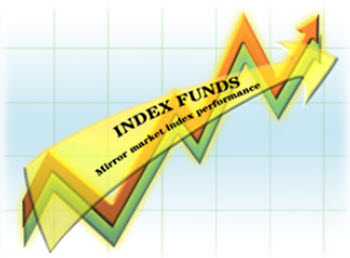Several of the most actively traded Exchange Traded Funds (ETFs) are ETFs that follow an index. There are several reasons as to why investors elect to trade in index-tracking ETFs.
 An ETF that tracks in index will typically be a less volatile investment than if you were to pick just one or a few stock companies and invest directly in them.
An ETF that tracks in index will typically be a less volatile investment than if you were to pick just one or a few stock companies and invest directly in them.
If you want to achieve the same stability as offered by an index-tracking fund, you would have to put together a large and properly diversified portfolio of stocks and buying all these stocks can be quite costly.
With an ETF, you don’t have to invest a large amount of money and put together your own balanced and diversified portfolio. You can buy as little as one share of the ETF. Not only will this require less of an investment in individual stocks; it will also (typically) cost much less in terms of commissions and other fees.
Some advantages of using ETF to track indices
- Get exposure to an entire portfolio in a single transaction
- You don’t have to do the work of putting together the underlying asset basket
- Ability to buy on margin
- Shorting ability
- ETFs can be sold short even on a down tick
- Mutual funds are priced daily. This is not true for ETFs – ETFs are bougth and sold throughout the trading day with flexing prices.
- Low transaction costs
- There are ETFs available with very low expense ratios, especially compared to mutual funds.
- If you don’t have a lot of money to invest, you can still invest in an ETF since it is possible to buy just one share of the ETF.
- In some jurisdictions, preferential tax treatments in comparison to mutual funds
- You can pick ETFs with a solid history of being highly liquid
- An easy way to follow an index based on a market that would be complicated for you to invest in directly, e.g. emerging markets in foreign countries.
This article was last updated on: August 28, 2016
